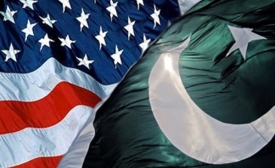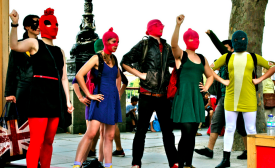pakistan
Public Diplomacy: A Global Phenomenon
In 2013, at least 136 countries were active in public diplomacy, both as principals and/or receivers, and PD activity took place in every region of the world. As represented in Figure 1, the United States, China, India, Russia, Israel, and the United Kingdom were the most mentioned actors in PD stories throughout the year.
Pakistan announced last week that it received a $1.5 billion grant from Saudi Arabia, which it termed a “friendly gift” and an “unconditional grant." Pakistan and Saudi Arabia have long had warm ties, but the no-strings-attached gift sparked immediate concern from Pakistani journalists, security experts, and opposition politicians, who question whether the grant is part of a behind-the-scenes deal for Pakistan to provide weapons for Syrian rebels.

Cameron Munter, former U.S. ambassador to Pakistan (2010-2012), discussed the complicated relationship between the United States and Pakistan, as embodied in the most recent period of severe crisis, which included the capture of Osama bin Laden and the latest phase of the Afghan war. He shed light on the role of public diplomacy during these times of crisis.
In this video, the U.S. Consulate in Karachi hosted a football clinic for local schoolgirls. Sports diplomacy has become an integral tool in building relationships between the U.S. and other nations. U.S. Consulate General Michael Dodman states, “This program is about two things, the things that bring us together as a culture which is the love of sports and to help improve the skills of the children of Karachi.”
Taliban and like-minded jihadis are becoming more united in their determination to impose their brand of sharia on both Afghanistan and Pakistan, with the help of their international mentors under the banner of al-Qaeda.
Topless demonstrators in Ukraine are part of the self-defined “sextremist” Femen group – radical women protesting the Russian invasion of Crimea. Femen is a stark example of frontline femmes who use their bodies and their voices to fight status quo corruption, war and a political oligarchy.

Topless demonstrators in Ukraine are part of the self-defined “sextremist” Femen group – radical women protesting the Russian invasion of Crimea.
Asia marked International Women’s Day on Saturday with little to celebrate. Despite mooted reforms, the region’s slow progress has been estimated to cost up to $50 billion a year in lost economic opportunities alone, in addition to huge social costs.







